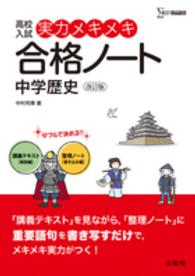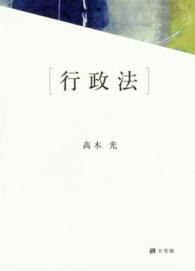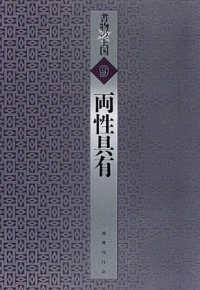- ホーム
- > 洋書
- > 英文書
- > Literary Criticism
Full Description
When Constance Garnett's translations (1910-20) made Dostoevsky's novels accessible in England for the first time they introduced a disruptive and liberating literary force, and English novelists had to confront a new model and rival. The writers who are the focus of this study - Lawrence, Woolf, Bennett, Conrad, Forster, Galsworthy and James - either admired or feared Dostoevsky as a monster who might dissolve all literary and cultural distinctions. Though their responses differed greatly, these writers were unanimous in their inability to recognize Dostoevsky as a literary artist. They viewed him instead as a psychologist, a mystic, a prophet and, in the cases of Lawrence and Conrad, a hated rival who compelled creative response. This study constructs a map of English modernist novelists' misreadings of Dostoevsky, and in so doing it illuminates their aesthetic and cultural values and the nature of the modern English novel.
Contents
Acknowledgments; 1. Introduction; 2. Prophetic rage and rivalry: D. H. Lawrence; 3. A modernist ambivalence: Virginia Woolf; 4. Sympathy, truth, and artlessness: Arnold Bennett; 5. Keeping the monster at bay: Joseph Conrad; 6. Dostoevsky and the gentleman-writers: E. M. Forster, John Galsworthy, and Henry James; Conclusion; Notes; Selected bibliography; Index.

![BD>E351系特急スーパーあずさ - 紅葉に染まる新宿~松本 [ビコムブルーレイ展望] <ブルーレイディスク>](../images/goods/ar2/web/imgdata2/48143/4814367473.jpg)






